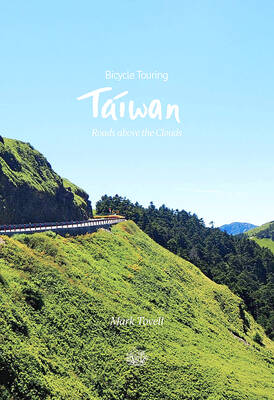A high-octane documentary on David Bowie has delighted fans at the Cannes Film Festival which is having a vintage year for music lovers.
Moonage Daydream by American documentary maker Brett Morgen is a tour de force through the daring creativity of the pop icon who influenced rock music like few others.
It is not the only music doc at the festival, which also premiered Jerry Lee Lewis: Trouble in Mind about the legendary rock’n’roller. The film was made by Ethan Coen, one half of the beloved Coen brothers film-making duo. Both docs eschew expert talking heads in favor of a more immersive experience.

Photo: AFP
“I don’t care what experts say,” Coen said at the festival. “Jerry Lee is a performer so I want to see the performance — not what some expert thinks about it.”
‘WILDLY CREATIVE’
By the time he died in 2016, Bowie had sold more than 100 million records, from his first hit single Space Oddity to his final album Blackstar, released just days before his death.
There was a massive wealth of clips, recordings, interviews, writings, movie performances and art by the artist — five million items in all — that Morgen went through to produce a mesmerizing patchwork of sounds and images.
“It’s not a biography,” Morgen said. “The film is meant to be sublime, and kaleidoscopic, and kind of wash over you.”
Having seen “nearly every image in existence of David Bowie, I am more in awe of him today than at any point,” Morgen said.
There was a temptation to simply call his film Bowie, but he resisted, because “there’s no definitive Bowie.”
Critics gushed, with The Telegraph calling Moonage Daydream “wildly creative” and The Guardian, in a five-star review, saying it was “a shapeshifting epiphany-slash-freakout... a glorious celebratory montage”.
ELVIS IS COMING
That’s not all the music to come at Cannes, which is also bracing for the world premiere on Wednesday of Elvis, the new biopic from Australia’s technicolour maestro Baz Luhrmann. The film stars newcomer Austin Butler in the lead role, with Tom Hanks as his infamous manager, Colonel Tom Parker.
Last year’s edition was also packed with music, opening with the eccentric musical Annette by Los Angeles pop duo Sparks, and featuring a lauded documentary about The Velvet Underground by cult director Todd Haynes, and a biopic about Celine Dion.
Cannes was also the launchpad for Amy about the tragically short life of singer Amy Winehouse, which premiered in 2015 to enthusiastic reviews. More broadly, this is something of a golden age for music documentaries as the genre moves away from the sort of simplistic, hero-worshipping films of old towards more innovative pieces of work.
Coen said he had been blown away by some recent documentaries — especially Get Back, the painstaking reconstruction of footage from The Beatles’ last-ever gig by Lord of the Rings director Peter Jackson.
“The Beatles one was fantastic. I could not get enough of it even though it was seven hours long,” Coen said.
“But it’s like anything — books or movies — there’s some good ones and a lot of bad ones.”

In late October of 1873 the government of Japan decided against sending a military expedition to Korea to force that nation to open trade relations. Across the government supporters of the expedition resigned immediately. The spectacle of revolt by disaffected samurai began to loom over Japanese politics. In January of 1874 disaffected samurai attacked a senior minister in Tokyo. A month later, a group of pro-Korea expedition and anti-foreign elements from Saga prefecture in Kyushu revolted, driven in part by high food prices stemming from poor harvests. Their leader, according to Edward Drea’s classic Japan’s Imperial Army, was a samurai

The following three paragraphs are just some of what the local Chinese-language press is reporting on breathlessly and following every twist and turn with the eagerness of a soap opera fan. For many English-language readers, it probably comes across as incomprehensibly opaque, so bear with me briefly dear reader: To the surprise of many, former pop singer and Democratic Progressive Party (DPP) ex-lawmaker Yu Tien (余天) of the Taiwan Normal Country Promotion Association (TNCPA) at the last minute dropped out of the running for committee chair of the DPP’s New Taipei City chapter, paving the way for DPP legislator Su

It’s hard to know where to begin with Mark Tovell’s Taiwan: Roads Above the Clouds. Having published a travelogue myself, as well as having contributed to several guidebooks, at first glance Tovell’s book appears to inhabit a middle ground — the kind of hard-to-sell nowheresville publishers detest. Leaf through the pages and you’ll find them suffuse with the purple prose best associated with travel literature: “When the sun is low on a warm, clear morning, and with the heat already rising, we stand at the riverside bike path leading south from Sanxia’s old cobble streets.” Hardly the stuff of your

Located down a sideroad in old Wanhua District (萬華區), Waley Art (水谷藝術) has an established reputation for curating some of the more provocative indie art exhibitions in Taipei. And this month is no exception. Beyond the innocuous facade of a shophouse, the full three stories of the gallery space (including the basement) have been taken over by photographs, installation videos and abstract images courtesy of two creatives who hail from the opposite ends of the earth, Taiwan’s Hsu Yi-ting (許懿婷) and Germany’s Benjamin Janzen. “In 2019, I had an art residency in Europe,” Hsu says. “I met Benjamin in the lobby